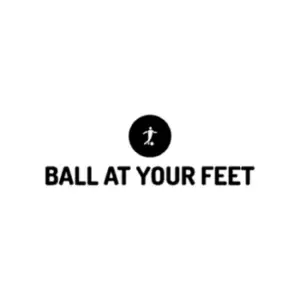I’m convinced goalies in soccer are some of the best goalscorers, especially during penalty kicks. Are they legally allowed to score, and when can they do it?
Goalies can score in soccer from set pieces, headers inside the box, long shots, penalty kicks, goal kicks, and punts. They often score late in the game resulting from a corner kick or offensive set piece. Goalies are allowed to leave their box at any time to try and score a goal but can’t use their hands outside their penalty area.
Keep reading to find out exactly when and how a goalie can score in soccer.
Can a goalie score in soccer?
Soccer goalies are unique because they can make saves and score goals. Are they allowed to score goals, and do they count?
A goalie can score in soccer from anywhere on the field. Generally, they score from a long punt or finishing an attacking set piece, most commonly a late-game corner kick. They can also score from penalty kicks. Goalies can’t score with their hands.
When a goalie goes past midfield, it usually means there’s little time left on the clock, and they’re trying to help their team score a goal.
In these moments, goalkeepers might even fancy a shot on target from a distance.
Likewise, they can get into the penalty box before a late-game corner kick or set piece to try and finish the ball. Believe it or not, goalkeepers make exceptional goal scorers.
Goalkeepers score goals more often than you might think. It happens from all over the field, too.
How can a goalie score in soccer?
There aren’t many differentiators for how goalies score in soccer. In fact, they can do it just like any position.
A goalie can score in soccer from anywhere on the field at any time with their foot, head, chest, or other playable body part. They often score from headers, corner kicks, penalty kicks, and punts from the other end of the field.
Goalies sometimes catch the other goalkeeper off guard and make a punt toward the other end of the field, resulting in a goal.
This can happen because the other goalie slipped and fell while trying to make the save.
Or, the other team’s goalie was too far up the field, and the punt went straight over their head with defenders to save it either.
When can a goalie score in soccer?
At what point do goalies go for glory during a match? Well, it’s usually toward the end, but that isn’t always the case.
A goalie can score in soccer at any point during the match. In general, goalies score goals late in the game from a last-minute corner kick or set piece. Although this is the most common time for goalies to score, they can also score from goal kicks or punts.
Goalies that punt the ball to score boast incredible leg strength; they need to kick the ball 100 yards, and it has to be on frame!
Goalies can go up for a corner kick to try and get their head or foot on the ball in the last minutes of a game when there’s no time for the other team to counterattack.
When you see a player wearing different colors run into the mix of players before a set piece, you know it’s a goalie and you can be sure they’ll do everything they can to score.
Usually, when a goalie scores from a punt, it’s because of an error from the other team.
Can a goalie use their hands to score?
Goalies can score like other players, but can they use their hands to score a goal? Would it be fair if they could?
A goalie can not use their hands to score in soccer because it’s against the rules. Goalies cannot use their hands outside their respective penalty areas and can’t use them to score. Even if a goalie could throw the ball from their penalty area into the other team’s goal, it would have to touch another player to count.
Similar to the throw-in rule (where the ball cannot be thrown directly into the net and must touch a playable body part before going in the net for it to count), a goalie can’t throw the ball directly into the other team’s net for a goal.
Although, I’d be curious to see if anyone can throw a soccer ball about 110 yards and score on a goalie and 11 potential defenders.
Technically, a defending team’s goalie can score an own goal with their hands.
Is the goalie allowed to leave their penalty area?
Does all this goal-scoring from goalies mean they can leave their penalty area? Well, they don’t have to score to be allowed.
The goalie is allowed to leave their penalty area at any time during the run of play to pass, receive, or shoot the ball. For example, a goalie may step outside the penalty area to connect passes from teammates during buildup play. They can’t leave the penalty area only when they’re defending a penalty kick.
Goalies can go anywhere on the field, but unless they want their team to get scored on, they should stay in the net most of the time.
It’s generally safe for them to leave the penalty area when their team has possession of the ball, and the opposition is not pressing near the net.
During penalty kicks, goalkeepers must stay on the goal line until after the kicker makes contact with the ball.
